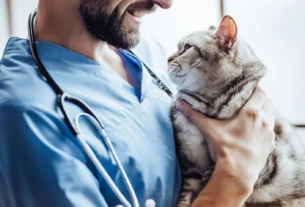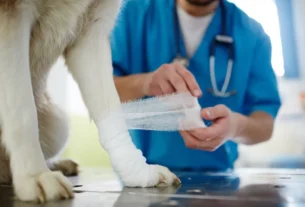Surgery on pets is quite a stressful affair for the owners, with costs being a factor many worry about. Be it an emergency surgery due to sudden injury or any scheduled procedure, all these factors make pet surgeries quite expensive. Fortunately, there are ways to manage such costs and get quality care for your pet without breaking the bank. This paper shall outline how best to understand the cost of surgery in pets, common types of surgeries, and ways of reducing these surgeries to an affordable price.
What emergency pet service are you looking:
- Emergency vet near me
- 24/7 veterinary services
- Urgent pet care
- After-hours vet clinic
- Free pet care service
- Emergency pet care
- Veterinary emergency service
- Vet open now
- 24-hour vet hospital
Free pet care services:
Why Pets Need Surgery
Pets also undergo surgery for various reasons. Some of the surgical operations are done for prevention or by choice, while other surgical operations might be in relation to serious injuries or critical health conditions. The following are some of the common reasons your pets may need surgery:
1. Spaying and Neutering: These are among the most common surgeries for cats and dogs and prevent unwanted litters as well as reduce the risk of specific health problems.
2. Dental Surgery: Dental issues in pets are rather common and could result in infections or even tooth loss. These types of dental cleaning or extractions may require surgery.
3. Orthopedic Surgery: Torn ligaments, broken bones, or hip dysplasia can demand orthopaedic surgery in active or large-sized pets.
4. Tumor Removal: Growths, lumps, and tumours can occur in pets that may require surgical removal either for testing purposes or to prevent complications.
5. Emergency Surgery: This could be due to the ingestion of foreign objects, bloat, or trauma associated with an accident; the sooner it’s treated, the better the chance of saving the pet’s life.
Cost of Pet Surgery: Understanding
Veterinary surgeries can range from several hundred dollars into the thousands of dollars, depending on the complexity of the surgery, where the clinic is located, and the required level of post-surgical care. Following are some of the factors that determine the cost of surgery for pets:
– Type of Surgery: The more complex surgeries, like orthopedic or neurosurgery, usually tend to be more expensive than simple ones.
Anesthesia: The amount and type of anesthesia that would be used is a factor, where bigger or more involved surgeries would require larger or stronger doses.
Location and Type of Clinic: Location and also whether at a specialty hospital or general vet clinic make huge differences in costs.
Postoperative Care: Follow-up visits, medication, and physical therapy are included in the overall cost of surgery.
While pet surgery may appear to be dauntingly expensive, there is more than one way to approach such surgery more affordably.
Affordable Options for Pet Surgery
There are plenty of strategies and resources available for a pet owner that can help him or her make the surgical treatment of pets come within budget. Following are discussed some of the best options to bring down the surgery cost of your pet:
1. Shop Around for Vets
Prices in different clinics at times differ vastly, even within one location. When possible, always be on the lookout for several estimates at veterinary clinics in order to determine which offers the best price. At times, some clinics offer lower prices for certain surgeries, which will not necessitate compromising quality. Veterinary schools often offer cheaper surgeries as part of their curriculum when supervised by professionals.
2. Search for Nonprofit Organizations and Low-Cost Clinics
Many organizations and charities provide surgeries either at a very low cost or free to those who cannot afford high-cost procedures for their pets. A few examples of services you may want to seek out:
SPCA or Humane Societies-low-cost spay/neuter clinics; other services at reduced rates
Pet Assistance Foundations-Many national and local charities, like the Humane Society or RedRover, offer grants for or support in performing emergency surgeries.
– Community Clinics: Check your local community for mobile vet clinics, and these may offer ‘lower-cost’ services for cats and dogs, including surgeries.
3. Get Pet Insurance
Having pet insurance can be a lifesaver when it comes to managing the cost of unexpected surgery. Ideally, you get the pet insurance when the pet is young and healthy; most policies will cover surgery for injuries or illnesses when the plan allows. A few pet insurance providers will even cover part of the cost of preventive surgeries. It is very important to carefully read policies for understanding coverage limits, waiting periods, and any exclusions that may apply.
4. Research Veterinary Financing Options
Veterinarians are becoming increasingly willing to set up payment plans or partner with financing firms to help regular owners defray the cost of expensive surgeries. Some of the more popular options include:
CareCredit: This medical credit card is designed for paying for pet medical expenses over time, with little to no interest, depending on the plan.
– Scratchpay: Another option in partnership with many veterinary clinics. Scratchpay allows for flexible payment plans to make pet care easier to pay.
– Vet Billing: Some use Vet Billing-a facility by which the service provider allows the clients to pay off in installments over several months.
5. Crowdfunding for Pet Surgery
Crowdfunding is the modern way of gathering funds in the event of emergencies for pets. GoFundMe and Waggle operate websites whereby pets’ owners tell their stories and ask others to donate towards surgery. Full transparency and clear details of the condition are crucial for building a case that must be supported by donors.
6. Look for Online Grants and Support Programs
Several online entities exist that grant money for pet owners needing surgeries or other monetary treatments. Some of the most valuable resources include:
The Pet Fund: Non-profit organization that provides financial assistance for non-basic, non-emergency veterinary care.
The Brown Dog Foundation: Works to help assist with immediate care needed for pets when in life-threatening situations.
Frankie’s Friends: Assists in aiding with the cost of surgeries and critical care for pets.
Preventive Care to Avoid Costly Surgery
One of the most effective ways to avoid high-cost surgeries down the line is through preventive steps. Some of these preventive measures include saving money on veterinary costs:
Routine Veterinary Check-ups: Regular check-ups help catch health issues early on to avoid costly surgery later on.
Weight Management and Nutrition: Keeping your pet at a healthy weight can avoid orthopedic issues and other obesity problems.
Dental Care: Regular dental care and check-ups prevent dental surgery due to decaying or gum disease.
House Proofing Your Pet: Prevent accidents by taking away hazards like small objects, toxic plants, or unsecured trash cans that can entail emergency situations.
Surgery is often an unexpected but an inevitable part of being a pet owner. Sure, these costs can be overwhelming at times; however, there are ways you can afford these costs. There are numerous options out there, everything from nonprofits and low-cost clinics to insurance plans and financing options that might make it possible to afford such pet surgery expenses. A bit of prevention and investigation into all your options can result in your being able to get your pet the treatment they require without breaking the bank. Just a little preparedness and education about situations like these, and you will be able to handle the costs of pet surgery without having to compromise on the health and well-being of your dear pet.





